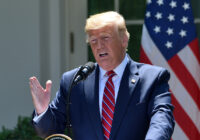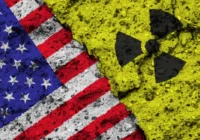In a somber interview with Judge Andrew Napolitano, who expressed his alarm at the neocon rhetoric he has been hearing from United States President-elect Donald Trump’s appointees, economist and political scientist Jeffrey Sachs asked a fundamental question to which there is no simple response:
“Why our policy makers cannot for one moment think from the perspective of the other side is some kind of amazing incapacity, some fundamental dishonesty or some fundamental incapacity of these people that is so shocking it puts us all at risk. The first point of diplomacy at least is to understand the position of the other side. And we refuse to acknowledge that position. Yet that position makes a lot of sense when you listen to it and hear it because these are real concerns by a country that feels that it is directly under threat by us, a nuclear superpower.”
Today’s Weekly Devil’s Dictionary definition:
Incapacity:
A basic career skill required for today’s politicians that enables them to appear strong and decisive, qualities that would be seriously compromised if they were to be tempted by the dubious qualities and attitudes known as curiosity, empirical wisdom, historical memory and empathy.
Contextual note
The incapacity to see events from two points of view and the consequent absence of empathy now appear as supreme virtues in the world of Western diplomacy. The surest way of manifesting that required incapacity is to avoid any situation in which dialogue might lead to an appreciation of complexity.
Since the beginning of organized human societies, when local tribes quarreled over territory or other possible motives of envy, diplomacy offered the possibility of seeking to understand the requirements, desires or ambitions of the opposing party. The knowledge gained through dialogue would serve either to confirm the incompatibility of the contrasting positions or define possible avenues of compromise.
Diplomacy guarantees nothing. It doesn’t prevent wars from occurring. But it can provide an idea of what a solution might look like, whether it’s the victory of one side or the other or the terms of a settlement acceptable to both sides. In pre-industrial days, it was rare for one party to think it had the technology and sheer material force to impose what it considered an “unbending” or “ironclad” principle that excluded at the very least an initial discussion. But we have entered the era of ironclad ideas. Formerly, soldiers or vehicles might have been literally ironclad. Today it’s the principles and beliefs about the world that have earned that epithet.
Some will say nothing has changed. Throughout history, diplomacy would begin with the formulation of one’s group or nation’s “interest.” If those interests were not respected, there would be consequences. So what has changed? Perhaps the modern conviction that “time is money,” “delay is costly” and “talk is cheap” has convinced a generation of political figures to adhere to a new principle of efficiency. By failing to put a plan into action immediately, one risks losing one’s resolve.
One thing is true of all situations of budding conflict. Whatever is decided, with or without negotiation, there will always be consequences. The boring business of discussing and thrashing out the details happens to be the likely negative consequence of diplomacy, certainly less exciting than war. And though it may be painful to think that the “great principle” driving our behavior and giving us a sense of identity has not been fully realized after a successful negotiation takes place, most people still believe that living to regret is preferable to mutual annihilation.
The real difference today is the factor mentioned above: the sense of identity. It’s only recently that humanity has accepted the principle that the Earth’s surface must be divided into nation states. This has spawned the phenomenon of a population’s identification with the nation state. As a feature of international relations, this appears as the question of territorial sovereignty. In many people’s minds it has evolved into what is felt to be an ironclad principle. Until just a few days ago, Ukrainian President Volodymyr Zelenskyy consistently used this as the reason for refusing to consider ceding a square inch of terrain. That ironclad position miraculously lost its tensile strength when he realized that Trump’s concept of territorial sovereignty may be looser than his own.
But the territory of a nation state is not the only factor of identity. In the case of the US, it is the belief in American exceptionalism, the conviction that the nation has a mission to impose order wherever disorder appears in the world. This particular sense of identity requires its citizens to believe that imposing order is not an act of pure self-interest, but that it corresponds to the nation’s “manifest destiny.” This sense of a divine calling was confirmed in 1954 when President Dwight D. Eisenhower added “under God” to the Pledge of Allegiance all schoolchildren are required to recite.
Then there’s the even more extreme example of Israel. It may seem to many people normal that when the US emerged as the pre-eminent victor of World War II, endowed with an economy and technology that dwarfed that of every other nation, it should think itself exceptional to the point of believing itself tasked with the mission of regulating all the world’s problems. The doctor doesn’t negotiate with the disease, but instead applies the treatment. How else can anyone explain the fact that in December 2021, the US could simply refuse to sit down and discuss with Russia the question of “indivisible security,” a notion that had served to formulate a key factor of inter-bloc behavior during the Cold War?
Israel may dominate its region in numerous ways — militarily, economically and technologically — but, unlike the US, it cannot claim to have the mission of solving other people’s problems. Instead, it founds its refusal to dialogue coupled with its incapacity to empathize on a principle derived from its reading of its version of holy scripture: the laws, principles and ambitions listed in the books of the Torah. The only thing mysterious about the current situation in the Middle East is the literally ironclad identification of the US government and many of its people with what is essentially a political position formulated by unidentified scribes some 3,000 years ago. That propensity of Americans to identify with it literally defies understanding.
Historical note
In the interview cited above, Sachs reminds us of a famous quote from 1963 by US President John Fitzgerald Kennedy:
“Above all, while defending our own vital interests, nuclear powers must avert those confrontations which bring an adversary to a choice of either a humiliating retreat or a nuclear war. To adopt that kind of course in the nuclear age would be evidence only of the bankruptcy of our policy–or of a collective death-wish for the world.”
Kennedy admitted that international relations began with the idea of “defending… vital interests.” But he appears to be suggesting a condition today’s virtuously “incapacitated” political strategists no longer acknowledge: that averting confrontation is itself a shared “vital interest” of all parties.
Sachs notes that all the rhetoric over the past three years has pointed towards the very thing Kennedy believed was unthinkable: making a choice between humiliation — certainly unacceptable to anyone who believes in their own power — and a nuclear confrontation. If a nation that believes itself exceptional — or a nation such as Ukraine that believes it is backed by an exceptional nation — sees this as the choice, the danger is real that nuclear war will at some point become inevitable.
Is Sachs wrong to call this an “incapacity” of the politicians concerned? Or should we think of it merely as a temporary preference? There is little question that for the moment the US and Israel, but also the United Kingdom, have displayed behavior consistent with Sachs’s observation. We need only remind ourselves that it was Boris Johnson, the UK’s prime minister at the time, who in late March 2022 stepped in to convince Zelenskyy that there was nothing to negotiate, opening the door to two and a half years of prolonged, unnegotiated conflict in which hundreds of thousands of Ukrainian and Russian bodies would be literally and absolutely “incapacitated.”
Sachs made Judge Napolitano laugh at one point, when he summed up his appreciation of the politicians with this remark:
“They are individually and collectively strategic ignoramuses. I mean, one can only wonder what they’re thinking, right? When you look at Western leaders, you just shake your head and say, ‘Did these people ever take Strategy 101?’ And then you say to yourself, ‘If they did take Strategy 101, it must be the case that they failed the course — because the way they approach these different foreign policy problems facing them, it’s really quite remarkable in how ignorantly they behave.’”
The world is now awaiting to understand how much incapacity Trump’s new administration will wield.
*[In the age of Oscar Wilde and Mark Twain, another American wit, the journalist Ambrose Bierce produced a series of satirical definitions of commonly used terms, throwing light on their hidden meanings in real discourse. Bierce eventually collected and published them as a book, The Devil’s Dictionary, in 1911. We have shamelessly appropriated his title in the interest of continuing his wholesome pedagogical effort to enlighten generations of readers of the news. Read more of Fair Observer Devil’s Dictionary.]
[Lee Thompson-Kolar edited this piece.]
The views expressed in this article are the author’s own and do not necessarily reflect Fair Observer’s editorial policy.
Support Fair Observer
We rely on your support for our independence, diversity and quality.
For more than 10 years, Fair Observer has been free, fair and independent. No billionaire owns us, no advertisers control us. We are a reader-supported nonprofit. Unlike many other publications, we keep our content free for readers regardless of where they live or whether they can afford to pay. We have no paywalls and no ads.
In the post-truth era of fake news, echo chambers and filter bubbles, we publish a plurality of perspectives from around the world. Anyone can publish with us, but everyone goes through a rigorous editorial process. So, you get fact-checked, well-reasoned content instead of noise.
We publish 2,500+ voices from 90+ countries. We also conduct education and training programs
on subjects ranging from digital media and journalism to writing and critical thinking. This
doesn’t come cheap. Servers, editors, trainers and web developers cost
money.
Please consider supporting us on a regular basis as a recurring donor or a
sustaining member.
Will you support FO’s journalism?
We rely on your support for our independence, diversity and quality.







Comment